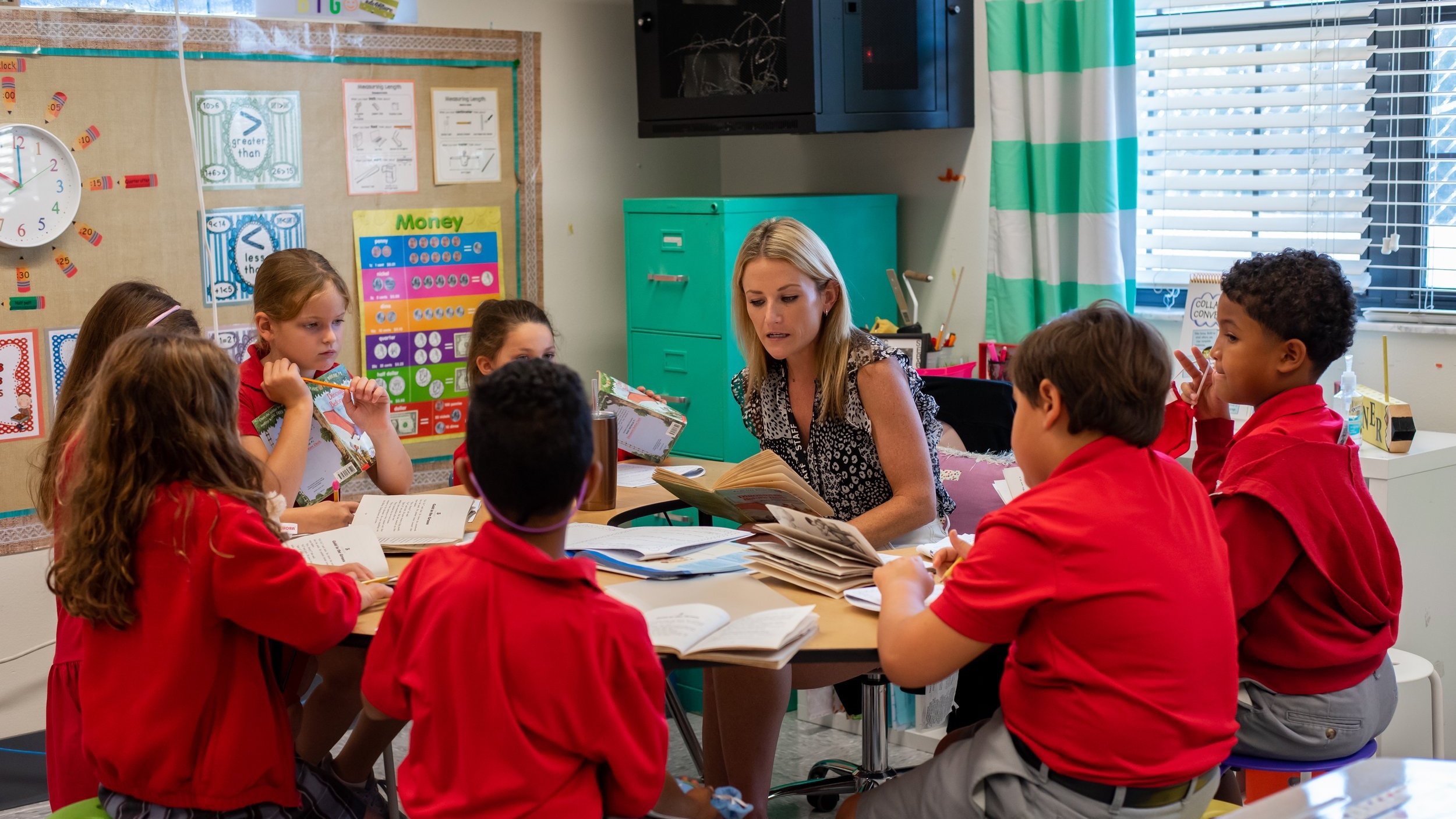
Our Academics.
The essence and beauty of Catholic education is to promote the growth of the individual, the development of the whole person. This call to formation of the whole person in students is one with far-reaching implications for curriculum and instruction in the Catholic school. It places special emphasis upon learner outcomes, but in the balanced context of a faith community that insists upon the continuous formation of the teacher and subject matter that is organized relevantly to the holistic development of the student.
Curriculum is based on Diocesan-approved standards, benchmarks, and learning objectives which exceed both state and national performance norms. All resources and curriculum materials used in our schools are aligned with the National Standards and Benchmarks for Effective Catholic Elementary and Secondary Schools and are approved by the Diocese.

Educating the whole child—mentally, physically, and spiritually.
Curriculum.
To learn is to grow, to change, and to live. Instructional approaches and methods are varied in an attempt to meet the various learning styles and needs of students and to help them integrate concepts, skills and attitudes. The faculty continually reviews and evaluates the content and instructional materials in each subject area. Textbooks, along with state of the art technology and manipulatives provide for advanced learning opportunities and creative expression.
STREAM (Science, technology, religion, engineering, arts, and math)
Blessed Trinity Catholic School is preparing students to leverage technology to solve problems and think critically. The STREAM lab features 3D printers, robotics, and a host of other technologies for hands–on learning. We also incorporate STREAM in every grade level with hands on lessons and activities using all our labs and our outdoor garden.
Educational Technology.
Blessed Trinity School uses emerging technologies as valuable tools for communication and learning. We recognize the importance of incorporating modern technology into all areas of the curriculum to ensure that our students will be prepared, enthusiastic, and productive members of their world community. All students receive instruction appropriate to their grade level. Every classroom is equipped with many different types of technology that enable teachers to enhance lessons with technology. All students receive hands-on instruction and curriculum integration in our classrooms and computer labs.
Online Library.
Students can use our online library system, Follett Destiny, to check out ebooks and reserve books from our Media Center. Please contact Mrs. Judy Waller if you have any questions.





